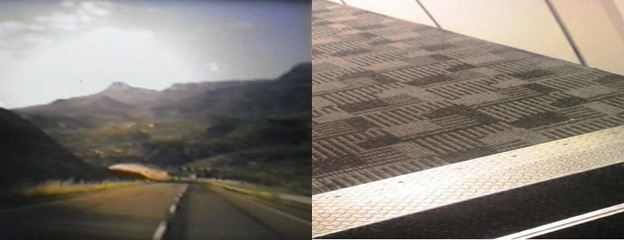After familiarizing ourselves with
the house of two rooms, outdoor roki and
the most picturesque seaside bwia,
Amanda showed us around her school’s compound. No larger than half the size of a football
field, the thirteen houses encircling the school were busy preparing the meal
for our welcome celebration which was to be held later that night on the school’s
compound.
“Nako mai, Toka! Come over, sit!” we heard as we walked through the compound. Residents beckoned us to sit and talk on
their bwia. Unable to say anything more than our names and
hometowns in the Kiribati language, the families still showed great
appreciation for our feeble attempts at speaking their language. Once seated, it wasn’t long before plates of
food and cups of hot tea were rushed to the center of the raised platform for
our enjoyment. We continued to receive
such warm hospitality with each house we visited, making us feel more welcomed. As the day’s sunlight faded, our visits
progressively shortened, as it was time to return to our house. When we
returned, we could see billowing clouds of smoke rising from the back of each
house. “They are all cooking for your
welcome Bootaki tonight,” Amanda informed
us as we began touring the empty classrooms.
Bootakis are highly structured celebrations that recognize special occasions, achievements,
and individuals. These celebrations
recognized the celebrated individuals as well as the hosts through gift-giving,
speeches, and performances. Large
celebrations took place in village maneabas,
the centers of village social life. These towering structures were as much
symbolic as they were practical. The
large meeting halls reflected the village’s strength and unity. Each supporting post in the structure represented
a family lineage found within the village.
Families supported village life, as posts supported the maneaba’s roof. When there were tensions in the village,
there were tensions in the maneaba’s social system of governing.
During
celebrations, guests sat against maneaba posts facing the lagoon, while
hosts sat against posts facing the ocean. Since atolls rise just several feet
above the ocean, maneaba structures are
often the first things seen by approaching sea vessels; seating arrangements
reflect this dichotomy.
 |
| Local thatched roof maneaba |
Instead of a maneaba, our welcome bootaki was held in a classroom. Teachers rented a generator to provide lights
and music for the celebration. We sat
according to maneaba protocol, facing
the lagoon, while the teachers faced the ocean.
After a formal welcome speech, which was delivered in English by
one of the teachers, we introduced ourselves in our best broken I-Kiribati. Our introductions were riddled with multiple
errors, which created roars of laughter from everyone in the room. Laughter rose to a fever pitch when Stacy accidentally
introduced herself as an ass. We became
both the guests and entertainers for
the night. Our only saving graces were
the teachers who were not shy to share with us the comedy of our mistakes. We had as much fun laughing at ourselves as
the teachers did laughing at us.
Any outsider could see that the
school and teachers did not have a lot of money to fund celebrations, complete
with imported foods and fuel for electricity.
Nevertheless, it did not stop them from collectively gathering what
funds they could to provide food, electricity and a sound system for the
night. Like the posts that
supported the village maneaba,
the teachers came together to support our welcome to their island, which filled
us all. In a letter home, I told my
family how moved I was at receiving so much from people who clearly did not
have much at all.
Only one week in the country and I
was beginning to see the world in a very different way.








